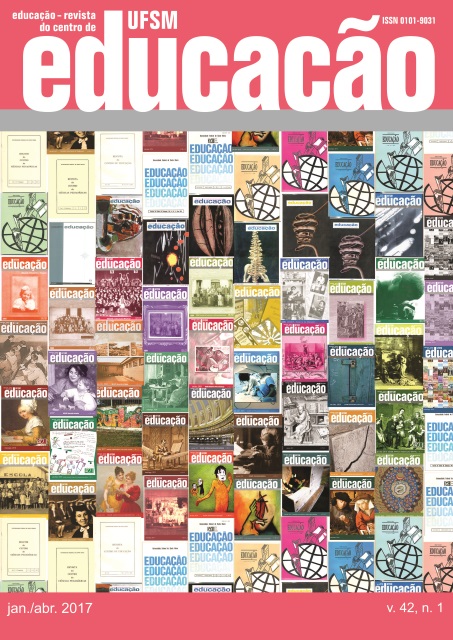Por um outro princípio da realidade: o sentido formativo da estética em H. Marcuse
DOI:
https://doi.org/10.5902/1984644418912Palavras-chave:
Marcuse, princípio da realidade, educação estética.Resumo
Para Marcuse, o princípio do desempenho característico da sociedade ocidental moderna parece ter criado as pré-condições necessárias para o surgimento de um princípio da realidade não-repressivo. Contudo, para que o princípio da realidade seja superado é necessário ainda a emergência de uma racionalidade científica que comtemple o telos essencial da técnica como preservação da vida. O presente ensaio pretende, a partir da obra de Marcuse, refletir acerca dos elementos que podem reforçar a transição para um outro princípio da realidade. A nossa hipótese se baseia na perspectiva de que uma nova estrutura da experiência, resultante do contato com a educação estética, oferece uma base sólida para se pensar tanto uma noção de técnica não-repressiva, quanto a possibilidade de emergência de um princípio da realidade mutável.
Downloads
Publicado
Como Citar
Edição
Seção
Licença

This work is licensed under a Creative Commons Attribution-NonCommercial 4.0 International (CC BY-NC 4.0)
Declaramos o artigo _______________________________ a ser submetido para avaliação o periódico Educação (UFSM) é original e inédito, assim como não foi enviado para qualquer outra publicação, como um todo ou uma fração.
Também reconhecemos que a submissão dos originais à Revista Educação (UFSM) implica na transferência de direitos autorais para publicação digital na revista. Em caso de incumprimento, o infrator receberá sanções e penalidades previstas pela Lei Brasileira de Proteção de Direitos Autorais (n. 9610, de 19/02/98).
_______________________________________________________
Nome completo do primeiro autor
CPF ________________






